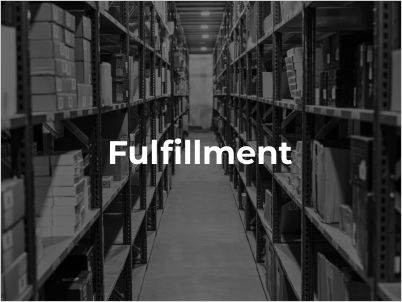
Competition in the e-commerce market is greater than ever before, and customers expect fast and flawless service. The role of automation in the future of fulfillment is becoming crucial.
The automation of warehousing and logistics is speeding up processes, enabling companies to significantly reduce operating costs.
The rise of robotics
Warehouse robotics is already playing a significant role in the automation of fulfillment processes, and its importance will only grow. Robots, such as autonomous guided vehicles (AGVs) and autonomous mobile robots (AMRs), are changing the face of warehouses, increasing labour efficiency and minimising the need for human intervention. The next few years are predicted to bring even greater integration of robotic systems, enabling even faster and more accurate order picking.
Developments in artificial intelligence leading to automation in fulfillment
Artificial intelligence (AI) and machine learning (ML) are having an increasing impact on fulfillment processes. With its ability to analyse large amounts of data, AI can predict purchasing trends, optimise inventories and automatically adapt logistics processes to changing conditions. In the future, we can expect AI systems to be even better at predicting product demand and automatically managing warehouse inventory, significantly reducing the time and costs associated with fulfillment processing.
Personalisation of the customer experience
Automation enables not only the optimisation of internal processes, but also the personalisation of the customer experience. Advanced warehouse management systems (WMS) allow for rapid customisation of offerings, from personalising packaging to customising delivery methods. In the future, further developments in technology will enable companies to offer even more personalised and flexible fulfilment options, further enhancing customer satisfaction.
Sustainability and ecology
Sustainability and ecological issues are becoming increasingly important in the context of fulfilment. Automation offers the potential to significantly reduce the carbon footprint by optimising delivery routes, reducing waste and managing energy in warehouses more efficiently. Future innovations in automation are likely to have an even greater focus on environmental aspects, enabling companies not only to reduce costs but also to operate sustainably.
Automation of fulfilment is the inevitable future of the logistics and e-commerce industry. Trends point to the increasing importance of robotics, artificial intelligence, personalisation of offers and sustainability. Companies that invest in these technologies will not only be able to significantly increase their competitiveness, but will also be able to better respond to growing customer expectations. In the coming years, we can expect further innovations that will further revolutionise the world of fulfilment.
Are you interested in our offer. Write to us! Contact page
Check out our other services.






